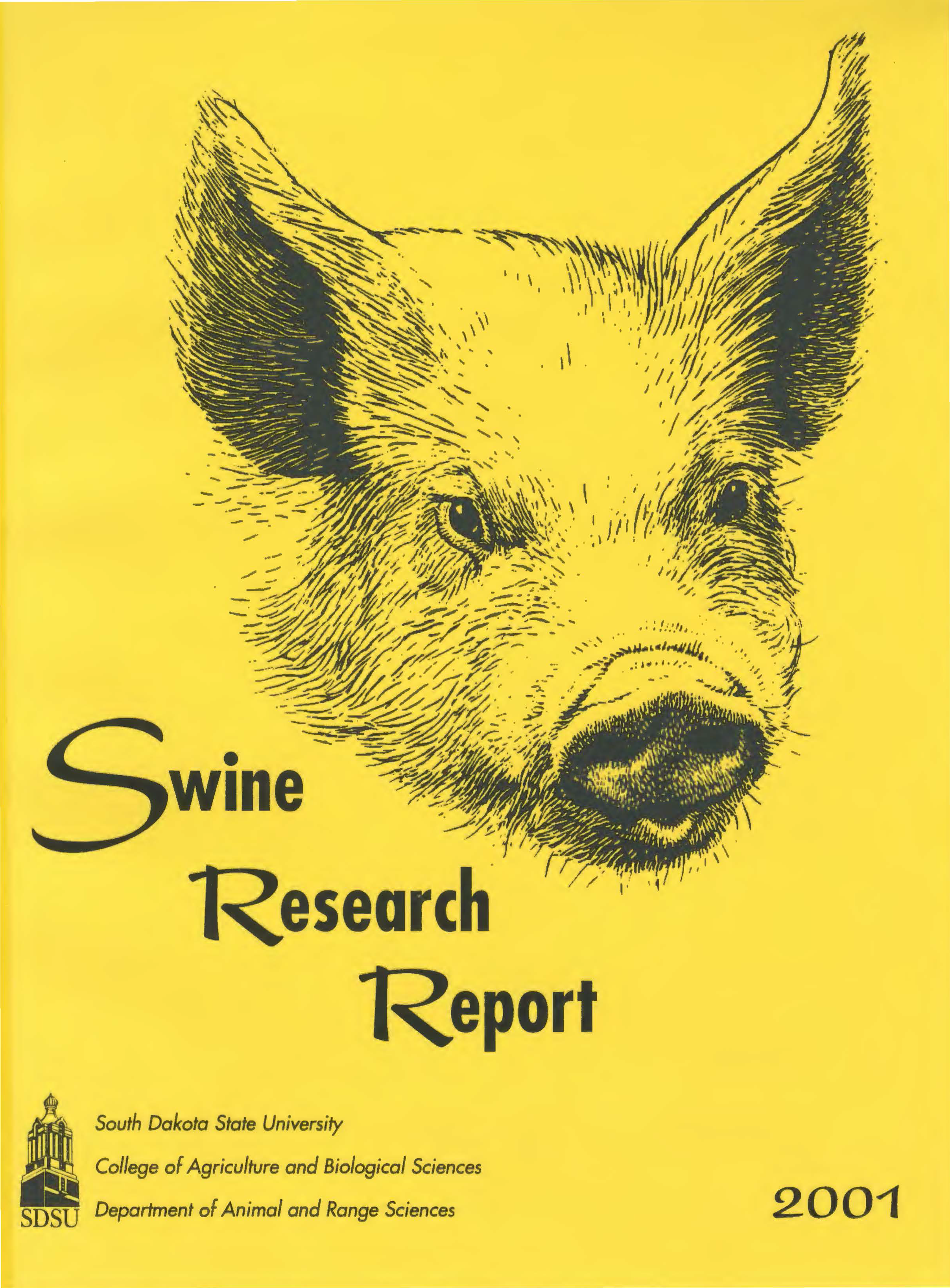Document Type
Article
2001-20
Publication Date
2002
Summary
Procine reproductive and respiratory syndrome virus (PRRSV) is transmitted through semen via natural mating or atrificial insemination. However, the minimal infective dose of PRRSV required to effect transmission through semen is not known. In this study, we induced estrus in PRRSV seronegative gilts and then artificially inseminated these animals with extended, commercial boar semen “seeded” with difference concentrations (2, 20, 200, 2,000, 20,000, 200,000, or 2,000,000 TCID50/50 ml of semen) of the PRRSV isolate SD 92-23983. Infection of gilts by PRRSV was confirmed by weekly bleedings of these animals to detect serconversion using the commercial IDEXX ELISA. All pigs (n=7) given ≥ 200,000 doses of PRRSV seroconverted 1 to 3 weeks after insemination. In contrast, only 1/5 and 1/5 pigs serconverted at dosages of 20,000 and 2,000, respectively. There was no seroconversion (0/14 pigs) at dosages ≤ 200. Pigs, wich did not seroconvert 4 to 5 weeks after artificial insemination with semen containing 200, 2,000, and 20,000 infectious doses of PRRSV, were intranasally inoculated with the same amount of virus. After intransal challenge 4/4 (20,000 doses), 4/4 (2,000 doses) and 0/4 (200 doses) pigs seroconverted within 1 to 3 weeks after inculation. The results indicated that higher infectious does of PRRSV/ml are required for transmission via semen compared to intransal inoculation, and the nested PCR assay can detect viral RNA in semen at concentrations that do not result in transmission of PRRSV by artificial insemenation.
Number of Pages
4
Format
application/pdf
Language
en
Publisher
South Dakota State University
Rights
Copyright © 2001
Recommended Citation
Nelson, C.D.; Rowland, R.R.; and Benfield, D.A., "Transmission of Porcine Reproductive and Respiratory Syndrome
Virus by Semen is Dose Dependent" (2002). South Dakota Swine Research Report, 2001. 21.
https://openprairie.sdstate.edu/sd_swinereport_2001/21

